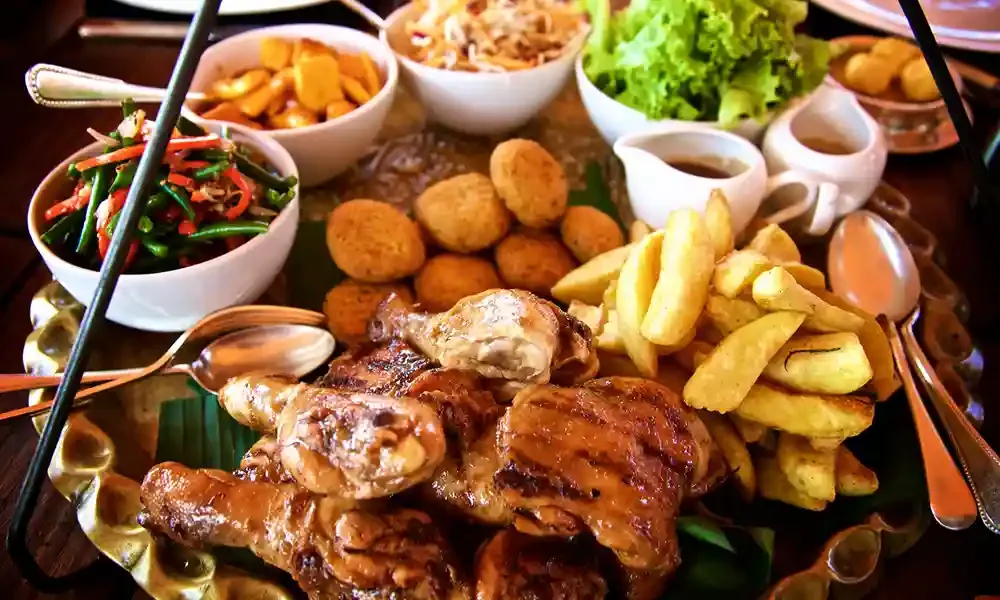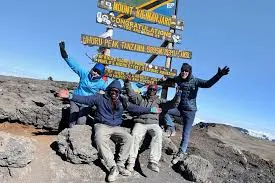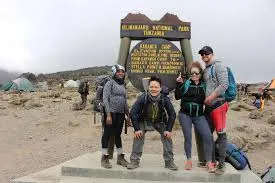High-Altitude Nutrition Tips for Kilimanjaro Climbers
For Kilimanjaro climbers, focus on small, frequent meals that are high in carbs and moderate in protein to maintain steady energy. Hydrate constantly and aim for 3 to 4 liters a day, as altitude dehydrates you faster. Pack easy-to-digest snacks like nuts, energy bars, and dried fruit. Electrolytes help prevent cramps and altitude fatigue. Remember that your appetite may decrease, so eat even if you’re not hungry; your body needs the fuel. Capable Africa Tours offers balanced, trek-friendly meals, but bringing high-calorie snacks like nuts and energy bars will keep you energized. From loading up on carbs before the trek to eating small, frequent meals on the trail, our expert guide discusses nutrition strategies for a successful 6 to 9 day summit.
Plan Your Kilimanjaro Trek Now
Why Nutrition Matters for Kilimanjaro
Climbing Kilimanjaro, at 19,341 feet, is a physical and mental challenge that demands proper nutrition. High-altitude trekking increases your body’s energy needs by 20–30% due to colder temperatures, lower oxygen levels, and intense exertion. Nutrition matters for Kilimanjaro because your body is under constant stress from altitude, cold, and long hikes. Eating the right mix of carbs, proteins, and fats keeps your energy steady, helps muscles recover, and supports acclimatization—basically, good fuel makes the climb safer and more enjoyable. Capable Africa Tours provides nutrient-dense meals tailored for trekkers, but understanding what to eat before, during, and after your climb is key to summiting successfully.
Nutritional Needs at High Altitude
| Nutrient | Role | Recommended Daily Intake | Food Sources |
|---|---|---|---|
| Carbohydrates | Primary energy source | 60–65% (500–700g) | Rice, pasta, oats, bananas |
| Proteins | Muscle repair, recovery | 15–20% (100–150g) | Lentils, eggs, chicken, nuts |
| Fats | Long-term energy, warmth | 20–25% (80–120g) | Avocados, olive oil, almonds |
| Electrolytes | Hydration, muscle function | 2–3g sodium, 3–4g potassium | Electrolyte tablets, bananas |
Pre-Trek Nutrition Checklist
- Carb-Loading (1–2 weeks before): Eat complex carbs like whole grains, sweet potatoes, and quinoa to build glycogen stores. Aim for 5–7g carbs per kg body weight daily.
- Protein Intake: Include lean proteins like chicken, fish, or tofu (1.2–1.6g per kg body weight) to support muscle strength.
- Healthy Fats: Add avocados, nuts, and olive oil for sustained energy and to combat cold summit conditions.
- Hydration Prep: Drink 2–3 liters of water daily before the trek to pre-hydrate. Avoid alcohol and limit caffeine.
- Supplements: Consider iron (for oxygen transport) and vitamin C (for immunity) after consulting a doctor.
Energy Demands on Kilimanjaro
| Day | Altitude (ft) | Daily Calorie Needs | Hydration Needs (L) |
|---|---|---|---|
| Day 1–2 | 6,000–9,000 | 3,500–4,000 | 3–4 |
| Day 3–5 | 9,000–12,500 | 4,000–4,500 | 4–5 |
| Summit Day | 12,500–19,341 | 4,500–5,000 | 5 |
Visualize Your Kilimanjaro Nutrition Plan
Watch this video to see how Capable Africa Tours crafts high-altitude meal plans to keep trekkers energized and hydrated on Kilimanjaro.
Top High-Altitude Nutrition Tips for Kilimanjaro
Climbing at high altitude puts extra demands on your body, so focus on eating nutrient-dense foods that provide steady energy. Prioritize complex carbohydrates like oats, rice, and whole grains, include lean proteins for muscle recovery, and healthy fats for endurance. Snack frequently with nuts, dried fruit, or energy bars to maintain energy levels. Stay well-hydrated by drinking plenty of water and consider electrolyte supplements to replace lost minerals and prevent altitude-related fatigue. Below is a comprehensive list of top high-altitude nutrition tips to help you stay energized and perform your best throughout your 6–9 day Kilimanjaro trek with Capable Africa Tours.
- Eat Small, Frequent Meals: Consume 5–6 small meals daily to maintain energy and ease high-altitude digestion.
- Pack High-Calorie Snacks: Bring lightweight options like energy bars (200–300 kcal each), trail mix, or chocolate for quick boosts.
- Use Hydration Systems: Carry a 3L hydration bladder for easy sipping; add electrolyte tablets to replace sodium and potassium.
- Balance Macronutrients: Aim for 60% carbs, 20% protein, 20% fat daily to sustain energy and recovery.
- Accommodate Dietary Needs: Inform Capable Africa Tours of vegetarian, vegan, or gluten-free needs for tailored meals.
- Avoid Digestive Stress: Skip greasy or heavy foods to prevent nausea, especially above 12,500 ft.
Ready to Fuel Your Kilimanjaro Adventure?
With Capable Africa Tours, climb Mount Kilimanjaro with confidence, fueled by expertly planned meals and nutrition strategies. Our guides and tailored itineraries ensure you’re energized for the summit.
- 98% summit success rate with expert nutrition planning
- Customized meal plans for vegetarian, vegan, and gluten-free diets
- High-calorie, trek-friendly meals included in all packages
- Eco-conscious treks supporting local Tanzanian communities
- All-inclusive packages with transfers and gear rentals
Limited spots available for Kilimanjaro treks — book now to secure your fueled-up adventure!
Plan Your Trek Now


